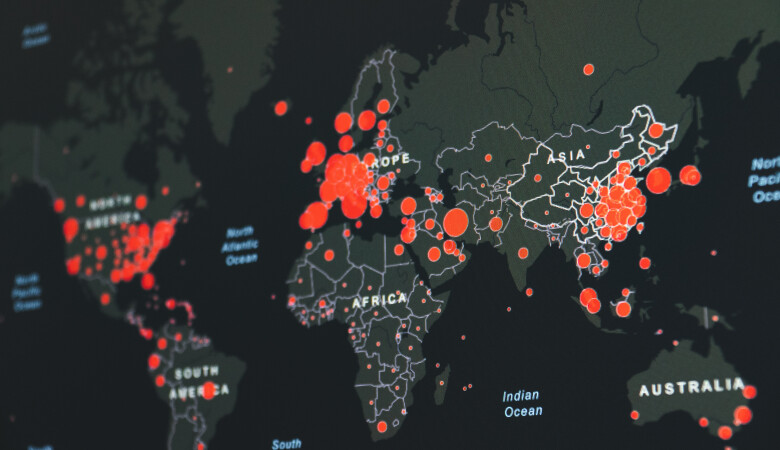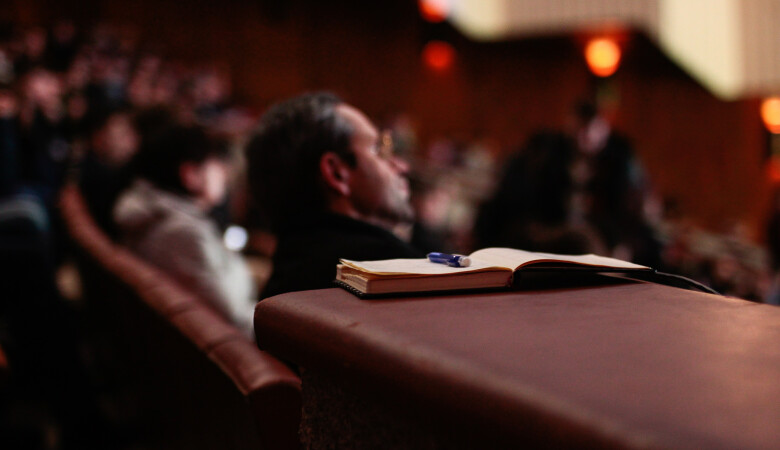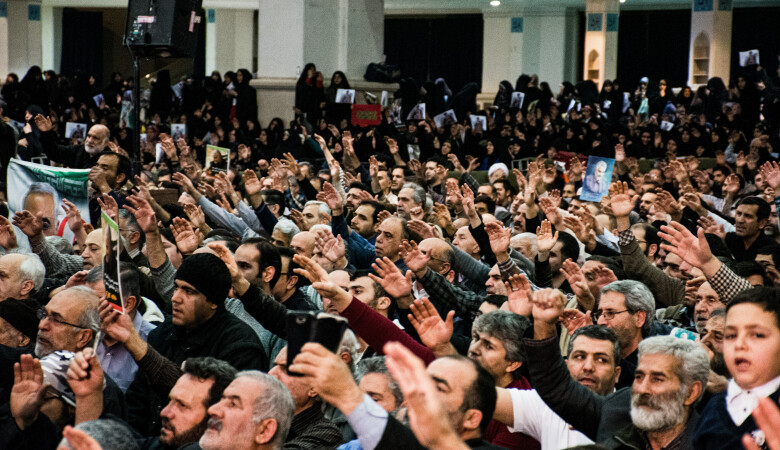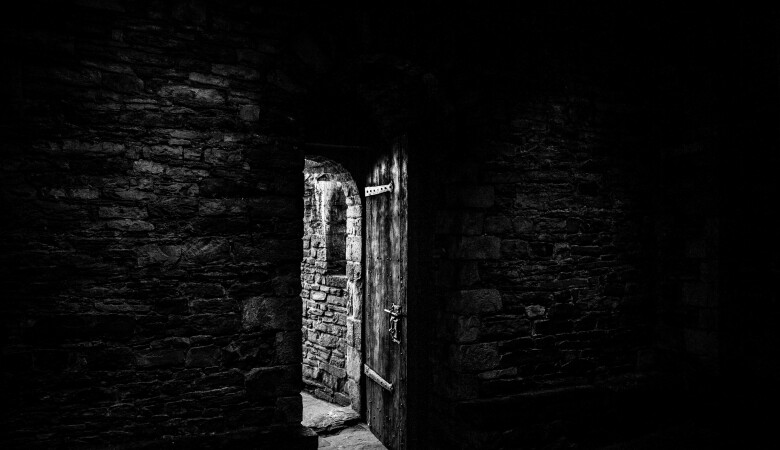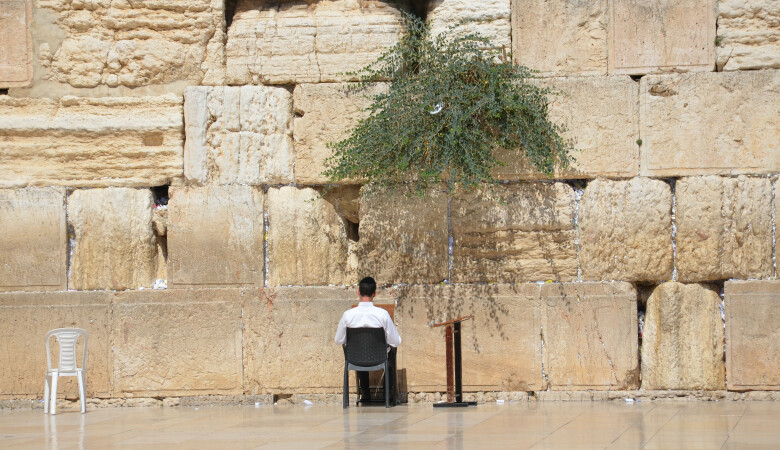Series: Mark
Injustice and Justice on Eternal Display (Mark Sermon 82)
March 17, 2024 | Andy Davis
Mark 14:53-65
Sinful Nature, Deity of Christ, Atonement
Jesus, who had no sin, stood on trial before a wicked and corrupt judicial system. He bore the sins of mankind as a substitute and died as a display of God's justice.
- SERMON TRANSCRIPT -
Christianity is a religion of paradoxes. What are paradoxes? They're seeming contradictions, things that don't seem apparently to harmonize with one another. They're both true. We see that concerning the Christian life. We're told that we see by invisible things. We conquer by submitting. We rest by taking a yoke upon ourselves. We reign by serving others. We become great by becoming small. We're most exalted when we're most humble. We live by dying. We gain by losing. When we are weak, then we're strong. These are all paradoxes. All of these paradoxes, and so many others in the Christian life, originate with Christ himself, the ultimate paradox of the incarnation. Things that we just cannot find any way to really totally harmonize and understand. The greatest paradoxes of Christ ultimately come down to His cross. Christ at His weakest is also Christ at His strongest, most powerful. Christ, at His most apparently foolish, is the wisdom of God.
The day of Christ's death, supernaturally dark but yet gloriously bright, that we find in this Man of Sorrows, the only way toward eternal joy of these paradoxes really focus ultimately on the cross. We're going to walk through one of them this morning with this sermon. We're going to see the beginning of trials of Jesus Christ before human authorities. God on trial before man, as man probes Him and accuses Him and demands answers from Him, and we see this paradox.
Immeasurable injustice and an eternal display of justice all at once. How can it be that the greatest display of injustice in human history is also the most perfect display of divine justice in human history? But it is, it is. We have a perfect man, the God man on trial before wicked men. There's the display of injustice, as only by them being unjust to Him can Jesus be condemned to death, because He had done nothing wrong. They have to be unjust to Jesus in order for God to display His justice while also saving us. That's what we're going to walk through today.
"The greatest paradoxes of Christ ultimately come down to His cross. Christ at His weakest is also Christ at His strongest, most powerful."
We have immeasurable injustice toward Jesus as they break every rule in the book pretty much to get Jesus killed. But in the end, based on Romans 3, we're going to see that it is only by this way that God can display His justice in saving sinners like us. And then in the end, it's not justice that's going to save us. It is mercy. It is grace. It is compassion. Us as sinners in heaven is not a display of divine justice. Jesus dying under the wrath of God is, but us being there in the new heaven, new earth, now that's mercy. That's mercy.
I. God on Trial Before Man; Man on Trial Before God
We're going to walk through that today. It's strange to consider God on trial before man, isn't it? C.S. Lewis wrote some essays that were gathered together in a book called, God in the Dock; it’s British for “God on trial.” They got that title from a statement that C.S. Lewis wrote. He said, "This ancient man approached God as the accused person approaches his judge, but for modern man, the roles are reversed. He is the judge and God is in the dock," meaning on trial. Man is hopefully quite a kindly judge, if God should have a reasonable defense for being the God who permits war and poverty and disease, He's ready to listen to it and the trial may even end in God's acquittal if we're really nice to God. But the important thing is that man is on the bench and God is in the dock.”
It's a massive role reversal, but honestly, it is the truth. Human beings put God on trial every day in their minds and hearts. God is the accused, they're the accuser, especially when it comes to human suffering. Somehow God owes me an explanation or perhaps even God owes me an apology. Elie Wiesel in his book on the Jewish Holocaust said openly that seeing the suffering of the Jewish people made him strong in his accusations against God. He wrote, "This day I cease to plead. I was no longer capable of lamentation. On the contrary, I felt very strong. I was the accuser, God the accused. He needs to give me an answer. He needs to give me an explanation." You see that reversal. Job himself we saw, as we walked through the Book of Job, got to that place too through his own suffering. In Job 31, he said, "I sign now my defense, let the Almighty answer me." Whoa, how did we get to that place? “Let my accuser [that’s God] put His indictment in writing. Surely I would wear it on my shoulder. I would put it on like a crown.”
In other words, I'm going to have the final word on this. Job’s saying, “I would give him an account of my every step. Like a prince I would approach Him.” Of course that didn't last long when God appeared in a whirlwind and spoke to him. “Who is this, who's talking?” He says, "Will the one who contends with the Almighty correct him? Let him who accuses God answer him." “Now I'm going to reverse it back, because I am God and you are my creations.” That's the Book of Job. We can see that tendency. Man, in his pain and his suffering or as part of the suffering human race, feels the right to put God on trial and demand explanations from Him.
In the text and where we're at in the Gospel of Mark, we've got to that place now. Jesus' trials are a picture of this reversal. Jesus, the glorious incarnate son of God standing on trial before wicked men, and they demand answers from Him. They accuse Him of crimes, they condemn Him to death and then they mistreat Him shamefully. Spitting in His face, slapping Him and all that. But we know, based also in the Book of Job, the future holds something very different, very different. The entire human race, every single member of it will be arraigned before the Judgment Seat of God. That's the truth, and the one seated on that seat will be Jesus himself. As He said in John 5, "The Father judges no one but has entrusted all judgment to the son. That all may honor the son even as they honor the Father." It's an incredible statement”. I am the judge of the earth", Jesus is saying there. He is. He openly says what it's going to be like in Matthew 25:31-32, "When the son of man comes in His glory and all the angels with Him, he will sit on His throne in heavenly glory and all the nations will be gathered before Him and He will separate the people one from another as a shepherd separates the sheep from the goats." That's what it's going to look like.
As we look at this account today, picture Annas and Caiaphas and all of the Sanhedrin, and not only that, but Pontius Pilate and all of them, everyone who spit in Jesus' face and slapped Him and mocked Him, all of them on their knees before Jesus and His glorious judgment seat, because that's going to come. And not just them, but all of us. It's good for us to picture that now by faith. See that it's coming, because it is.
II. Jewish Injustice on Jesus’ Case
So first, let's focus on what I've displayed or declared to be the most massive miscarriage of injustice in human history, which it is, the trials of Jesus, specifically this morning before Jewish religious leaders. Let's walk through it. I'll give you an overview of Jesus' trials. There are two main phases and each of those two phases had three parts, so effectively six aspects of His trial. The first was a religious trial before the Jewish authorities, and the second was a secular trial before Roman authority, and each of those had three subparts. I think God ordained that so that there would be an equal sharing of blame between Jews and Gentiles for the death of Jesus, the only-begotten son. Both Jews and Gentiles alike are responsible for killing Jesus. God ordained that, I think.
So as I said, each of these trials had three parts. Phase one was a religious trial. The first part of that is not in our account today, but it's in John's Gospel in John 18:13-24. It was an arraignment in the middle of the night or early morning at Annas' house. Jesus is brought to Annas. He was kind of like a one-man grand jury to try to ascertain what specific charges that they would make against Jesus. Annas was the true power behind all of this. He was the spider, the black spider at the center of all of this web; Annas was truly an evil man. He had been a high priest until the year 15 AD. The Romans seeing his power removed him, but allowed him to have significant influence in who would be his successor. Ordinarily, the high priest would serve till their death, but the Romans wanted to keep control so they removed him and everyone that succeeded him was part of his family, either his sons or his son-in-law. Caiaphas was his son-in-law. When Jesus was brought to Annas' home, Annas tried to get Jesus to incriminate himself, which is going to happen before the Sanhedrin as well. He probed Him about His doctrine, "So tell me..." This kind of thing. It's completely illegal. Jesus calls his bluff and demands witnesses, bring the witnesses in. Annas can't deal with that. So that early first phase is done rather quickly.
Part two, the first trial before the Sanhedrin, Caiaphas is presiding. That's the trial recorded for us in the text in Mark 14. We're going to walk through that. The third, part three, the same group is reconvened just before dawn to pronounce sentence on Jesus. That's recorded in Matthew 27:1. Then the next phase is a secular trial first before Pontius Pilate who then shipped the matter over to Herod Antipas, who's the Tetrarch of Galilee, who happened to be in Jerusalem at that time. That's recorded for us in Luke 23:6-12. Then back to Pilate one more time for him to wash his hands and finally condemn Jesus to death. Those are the six phases of Jesus' trial.
Now, all of these, all of them, are scandalous miscarriages of human justice. The are a clear display of injustice every step of the way. It's fascinating, because in different ways, but very similarly, both Jews and Romans prided themselves on their systems of jurisprudence, very proud of their enlightened systems of justice, and yet both broke many rules to get Jesus killed.
Concerning Jewish justice, it was established in the laws of Moses, given by God through Moses. God wanted to establish the Jewish people as a paradigm example to the worlds of justice of an enlightened human society. So the commandment, love your neighbor as yourself and you shall not bear false witness against your neighbor, these were foundational to the system of justice- basic building blocks. The key text is Deuteronomy 16:18-20. There God says through Moses, "Appoint judges and officials for each of your tribes in every town the Lord your God is giving you, and they shall judge the people fairly. Do not pervert justice or show partiality. Do not accept a bribe, for a bribe blinds the eyes of the wise and twist the words of the righteous. Follow justice and justice alone so that you may live and possess the land the Lord your God has given you." That's clear principle.
The Sanhedrin was established for the purpose of justice, making sure that accused people got a fair trial. Any Jewish community with at least 120 men could form their own counsel to try cases. The council came to be known by the Greek term for “sitting together,” “Sunedrion”, which comes over to Sanhedrin. There was a great, like the Supreme Court, great Sanhedrin, that's the one in Jerusalem and that's the one Jesus was arraigned before, but there were Sanhedrins all over the place, but the goal of all of them was to guarantee justice for someone accused of a crime.
Capital crimes, of course, had to be handled with special precision and care. Deuteronomy 17:6, "On the testimony of two or three witnesses, a man shall be put to death, but no one shall be put to death on the testimony of only one witness." Really amazingly false witnesses were to be punished most severely in Deuteronomy 19:16-19. It says, "If anyone is proven to be a false witness in a case, then whatever penalty would've come to that individual that they're accusing, would now come on the false witness." That's a pretty strong guarantee of justice there. But it didn't happen the night Jesus was on trial, not at all.
Rabbinical law also added to this in the same patterns to establish and make certain of justice, fairness, mercy. Rabbinical law kept going in that same way. It required that the sentence of death could not be carried out until the third day after the trial. The council members were to fast on the intervening days to make certain they were hearing from God right. This gave additional time also for witnesses that they hadn't been able to find yet that might be able to exonerate the individual. That's also by the way, why a capital trial could never occur during a feast, because they wouldn't be able to fast for that intervening day.
The witnesses that came had to give the exact date and time and location of the incident they're accusing the person of. There was always the presumption of innocence and the defense of the accused was handled with great care. If the verdict of death was not overturned, then an officer of the council would escort the prisoner to the place of execution. A herald would go ahead of the slow moving procession, declaring an loud voice, "This man, so-and-so, is led to punishment for such and such a crime. The witnesses who have sworn against him are so-and-so and so-and-so and so-and-so. So if anyone else has evidence in his favor, come forward quickly." This kind of thing.
At the place of execution, the convicted man was urged to confess his crime and then a powerful sedative drink was given to dull his senses and make the death less painful. In addition, no trial could begin or continue into the night. In the Sanhedrin when the vote for conviction was taken, it would proceed one at a time from the youngest to the oldest, so the youngest would not be unduly influenced by the older ones. This is fascinating, if the vote was ever unanimous for execution, the accused was immediately set free, because the necessary element of mercy was lacking from the Sanhedrin. In all of these things they operated under the principle that the Sanhedrin is to save, not destroy life. The goal was not merely justice, but mercy wherever possible.
Can you not see how all of this is thrown out in the case of Christ? All of it. Massive injustice at every point. The Sanhedrin violated virtually every principle of justice and mercy when it came to the trial of Jesus Christ. Jesus was effectively condemned before even coming to trial. The Jewish leaders had already tried and convicted Jesus illegally and unjustly in their own minds long before He stood before them. Nicodemus showed that when he said, "Do we condemn somebody without even having heard from…?" He knows what's happening. He can tell what's happening. He's condemned. They're just trying to find a way to kill him.
"The Sanhedrin violated virtually every principle of justice and mercy when it came to the trial of Jesus Christ. Jesus was effectively condemned before even coming to trial."
He was tried at night and in private. He had no defense counsel. There were many false witnesses, but none of them were held accountable for their false testimony. He was executed the same day he was tried and sentenced. There was no chance at an appeal, no opportunity for the counsel to fast to be sure they were doing the right thing. The whole thing was hastily thrown together in the middle of the night or early in the morning with the bare semblance of justice, because there was no justice in any of it.
Furthermore, they treated Jesus with tremendous disgrace, dishonor. They mocked him, they spat upon him something that would never, should never be done in any case. And who was it they were doing this to? The only perfect man that's ever lived. The only Jew that ever perfectly obeyed the laws of Moses from His first breath until His death. The only perfectly loving man that has ever lived, perfectly fulfilling the two great commandments. He loved the Lord God every moment of His life and loved His neighbor as Himself. No one ever did it like Jesus. That's the one they're trying to kill. Jesus at one point said directly to His enemies, this is amazing, John 8:46, "Can any of you prove me guilty of sin?" Imagine saying that to someone or to a group of people that hated Him. They couldn’t prove it, because He had never done anything wrong. 1 Peter 2:22 says, "He committed no sin and nor was there any deceit in His mouth."
Why then? Why? Why this hatred? Because concerning these corrupt Jewish leaders, He testified that what they did was evil, because He exposed their righteousness as a sham. They were whitewashed tombs, because He cleansed the temple twice, at the beginning of His ministry and then again at the end, thus hitting them in what they cared about the most, which was money, because He exposed their wicked oppression of the poor. Such as widows, devouring their homes, because they were jealous of His popularity with the people and of His miracles, that He had that kind of power. Because they were afraid and insecure, in reference to the Romans, afraid that the Romans would come and take away their place and their nation. For all of those reasons.
Caiaphas speaking politically and as a schemer, but also amazingly prophetically in John 11:50 said to the Sanhedrin, his fellow plotters, "You do not realize that it is better for you that one man die for the people than that the whole nation perish." What a great statement. Then the Apostle John puts in the editorial comment under the inspiration of the Holy Spirit, "Caiaphas did not say this on his own, but as high priest that year, he prophesied that Jesus would die not for the Jews only, but for the sins of the world.” Leaders all come to the same conclusion long before this, as the text says, the chief priest and the whole Sanhedrin are looking for evidence, false evidence against Jesus so they can put Him to death. That's all.
Let's walk through the facts of this corrupt trial in Mark's account. First of all, Mark skips the first step, that brief arraignment at Annas' house, John gives us that. Mark goes right to the first trial before the Sanhedrin, verse 53, “They took Jesus to the high priest and all the chief priests and elders, teachers of the law came together.” It's the middle of the night, so it’s already illegal.
We're tracking a side note on Peter in verse 54. Peter followed Him at a distance right into the courtyard of the high priest. There he sat with the guards and warmed himself at the fire. We'll do Peter, I think next week. We'll set him aside, but you know what's coming with Peter. But now let's focus on the trial verse 55, 56.
The chief priest and the whole Sanhedrin were looking for evidence against Jesus so that they could put Him to death, but they did not find any. Many testified falsely against Him, but their statements did not agree. So it was very difficult practically for the Sanhedrin to get false witnesses together at I'm guessing 3:00 in the morning. Hard to do, however they did it. How? Money. Money talks power. So they're able to rouse some men together out of their beds and get them to come. But they did a bad job. Their statements didn't agree. It was really, really bad. Strange too. They had a certain level of acceptable wickedness and injustice here and these guys were below it. It's really corrupt the whole thing. Also, once they're proven to be false witnesses, they should have been exposed and condemned by the law of Moses, but they weren't. There was no real quest for justice that night. Then other witnesses come up and they come closest to something Jesus actually did say, but even that they messed up. Verse 57, 58, "Then some stood up and gave this false testimony against him." We heard Him say, ‘I will destroy this manmade temple and in three days build another not made by man.’” But look at this, verse 59, "Yet even then their testimony did not agree."
What did Jesus actually say about that? The account is written for us in John chapter 2. Again, Jesus cleansed the temple early in his ministry. He did it twice, at the beginning and at the end. He does it at the beginning of his ministry as recorded in John 2, and the religious leaders came and challenged Jesus about his authority to do that. "What sign do you show us for doing these things?" This is John 2:18 and following. “Jesus answered them,’Destroy this temple and in three days I will raise it up.’ The Jews then said, ‘It has taken 46 years to build this temple and will you raise it up in three days?’" Look carefully, did Jesus claim that He would destroy or to be able to destroy the physical temple of Herod and rebuild it in three days? No, it's not what He said. No, His words were effectively, "You do the destroying, I'll do the raising. You destroy this temple. I'll raise it up in three days."
Now clearly He's talking about His body and John tells us that in John 2. That was the very thing they were in the process of doing, destroying Jesus' body, killing Him, and then He would do the raising. He would raise himself up from the dead on the third day. This is the reason the false witnesses were bickering about what Jesus actually had said and tried to shape their testimony accordingly. It is interesting to me that the second part of their words comes pretty close to the spiritual reality however. The tabernacle and the temple were pictures of Jesus's saving work as our great high priest. There were symbols, there were prophecies, prophetic pictures of the death of Jesus and resurrection and His ministry for us as high priest. Look at verse 58, “We heard him say, ‘I will destroy this manmade temple and in three days we'll build another not made by man.’"
It sounds an awful lot like what the author of Hebrews says in Hebrews 9:11, "When Christ came as high priest of the good things that are here, He went through the greater and more perfect tabernacle that is not manmade. That is to say not a part of this creation." That's pretty beautiful, isn't it? Jesus's body, dead on the cross and then raised up, becomes our spiritual tabernacle, the place by which our sins are forgiven and the place of access by which we enter into the presence of God, the author to Hebrews tells us.
Back to the trial, the frustration reaches a climax. Clearly even these witnesses can't agree. Verse 60, "Then the high priest stood up before them and asked Jesus, 'Are you not going to answer? What is this testimony that these men are bringing against you?'" Again, this is completely illegal. He should not be asking the accused directly for statements by which He would incriminate Himself by witnesses alone, if a man is to be put to death. He's doing the very thing that Annas had done earlier as recorded in John 18. So he goes after Jesus, trying to get Him out of His own mouth, He's going to say something that's going to condemn Him, but Jesus remains silent. Verse 61, "Jesus would not grace their wicked injustice with a single word." This was also a direct fulfillment of the prophecy in Isaiah 53:7, "He was led like a lamb to the slaughter and as a sheep before it shears his silence, so He did not open His mouth."
Then the high priest makes a final attempt in verse 61 again, the high priest asked Him, "Are you the Christ? The son of the blessed one?" The Gospel of Matthew tells us Caiaphas has charged Jesus with a solemn oath to tell the truth, "I charge you under oath by the living God, tell us if you are the Christ, the Son of God." This is incredibly hypocritical. What does the oath involve? Let's remember we're all in the presence of the Holy God, let's keep that in mind. "By the living God I charge you to tell the truth, because He sees you and He knows all that you're doing." Do you see how hypocritical this thing is? Charge you under oath by the living God. "Are you the Christ? The son of the blessed one, Son of God?" The high priest is luring Jesus, he thinks, to His own death by this and Jesus gives this stunning answer, verse 62, "I am."
What a statement, “I am.” Does that mean anything to the Jews? It means everything to the Jews. That's God's name. As the angel of the Lord revealed to Moses when Moses said, "What is your name?" "I am who I am. Tell them I am has sent you.” "I am.” This is a very, very important declaration by Jesus. Twenty-one times in the Gospel of John, Jesus uses this important phrase, “I am.” “Ego eimi “in the Greek. Most famously, most dramatically earlier in his ministry in John 8:58, Jesus said, "I tell you the truth, before Abraham was born, I am." They knew what He was claiming. They picked up stones to stone Him right there on the spot for blasphemy, claiming clearly to be God. Now at the critical moment of His trial, standing before the Sanhedrin, before the religious authorities of the Jewish nation, He claims overtly to be God in the flesh. Jesus knew full well what would come when He said that. It would be the way by which they would kill Him, and yet look what He did. Look at His courage in telling the truth.
Why did He do it? Because it is the truth and it's not just any truth. It is the truth we must all come to if we're going to be saved. You have to believe in the incarnation in order to be saved. You have to believe that Jesus of Nazareth is God in the flesh or you will not be saved. It's not optional doctrine here. John 8:24, "I told you," Jesus said to His enemies, "that you would die in your sins. For if you do not believe that I am, you will die in your sins.” We see the sublime courage of Jesus and He's not just speaking to them, but He's speaking to everyone that would ever read the scriptures. Through the Holy Spirit's recording of this, this is a message to us all, “I am.” But then He makes a prophetic claim about the future, "And you will see the son of man sitting at the right hand of the mighty one and coming on the clouds of heaven.” This is a combination of Psalm 1:10 and Daniel 7. In Psalm 1:10, David wrote, "The Lord said to my Lord, 'Sit at my right hand until I make your enemies a footstool for your feet.'" Jesus had made the point that the Messiah was more than merely the biological descendant of David. Whose son is the Christ? The Son of David was the reflex answer. How is it then the David speaking by the Spirit calls him Lord? For David said, "The Lord said to my Lord," what? What did he say? "Sit at my right hand until I make your enemies of foot still for your feet." Jesus, at this climactic legal moment of His life, says, "I am," claiming to be God. Then in the future you will see the son of man sitting at the right hand of the mighty one and coming on the clouds of heaven.
That also is an allusion to Daniel 7, the most stunning and spectacular prophecy in the Old Testament concerning the incarnation. In Daniel 7, the Son of Man vision, verse 13 and 14 says this, "In my vision at night I looked and there before me was one like a son of man coming with the clouds of heaven. He approached the ancient of days and was led into His presence. He was given authority, glory, and sovereign power. All peoples nations and men of every language worshiped Him. His dominion is an everlasting dominion that will not pass away and His kingdom is one that will never be destroyed." Daniel has a vision of the heavenly realms and almighty God, the Ancient of Days, God the Father seated on a throne ruling over earth and then another individual in Daniel's vision, one like a Son of Man, meaning human, approaches the Ancient of Days riding on clouds. That's a figure of deity and comes right into the presence of the Ancient of Days and receives from Him sovereign power and authority over the entire human race so that people from every tribe and language and people in nation would worship Him. That's deity. So you've got humanity, Son of Man, and you've got deity, all in one vision.
I believe as a side note, it's why Jesus has consistently called himself Son of Man. Read Daniel 7, every time He said Son of Man. Who do you think the Son of Man is in Daniel 7? He couches it in terms of a prophecy hereafter or in the future you will see this. You will see the Son of Man sitting at the right hand of power and coming on the clouds of heaven, a prediction of the Second Coming and of Judgment Day. And they will see it. As a matter of fact, every eye will see it, all the nations of the earth will see it. Everyone.
This shows, by the way, the significance in my opinion of the Daniel 7 prophecy. It's the one Jesus reaches for at this climactic moment as He stands before the Jewish nation with His legal future hanging in the balance, He reaches for Daniel 7. How significant must that prophecy be? What should the Jews have done at that moment? We all know they should have fallen on their faces in worship and believed in Him. Did you not have sufficient evidence? Were His miracles not sufficient? Was His character not sufficient? Were all the prophecies He'd fulfilled not sufficient? It was all sufficient. However, if they'd done that, none of us would ever have been saved. Their unbelief and rejection and their injustice was essential to our salvation.
The high priest tore his clothes, verse 63, "Why do we need any more witnesses?" He asked. "You've all heard the blasphemy. What do you think?" They all condemned him as worthy of death. Why did the high priest tear his clothes? Caiaphas tore his clothes. Oh, his ears, he just couldn't handle, his zeal for the glory of God was so great. He couldn't listen to this blasphemy. It's a sign of tremendous grief and sorrow. That's what he's doing on the outside. What's he thinking inside? "Got you. Finally, got you. Because now we can kill you." It's unbelievably wicked. This sham of tearing the clothes. Her was fulfilling this tragedy of tragedies in John 1:10-11, "He was in the world and though the world was made through him, the world did not recognize Him. He came to His own and His own did not receive Him."
What follows Caiaphas’ utter shamefulness, human synod is worse, verse 65, "Then some began to spit at Him. They blindfolded Him, struck Him with their fists and said, 'Prophesy.' And the guards took Him and beat Him." To spit in someone's face is the ultimate display of disrespect, stripping that person of humanity. Worse, they're mocking His powers as a supernatural wonder worker. They're blindfolding Him, striking Him and say, "All right, who hit you?" He knew who hit Him. Such treatment of a prisoner was completely illegal. Don't dishonor and strip somebody of their honor. It was great wickedness, but everything they did that night was illegal. The greatest display of injustice in human history. I can't help but thinking though, of the infinite and perfect fulfillment of some words spoken so so long before that by Joseph to his brothers in Genesis 50:20, "You meant it for evil, but God meant it for good, for the saving of many lives." Oh, they did mean it for evil, but God's purpose was for the salvation of a countless multitude from every tribe, language, people, and nation.
At the human level, this is a repulsive display of wickedness. But at God's level it is, and here I transition, an infinite display of His perfect justice, His justice. My assertion is that the death of Jesus Christ on the cross was the greatest display of God's justice in human history. Where do I get that? I get it from Romans 3:25-26,"God presented Him," [Jesus] "as a propitiation, a sacrifice of atonement through faith in His blood. He did this to demonstrate His justice." Just stop there. That's it. The death of Jesus, the bloody death of Jesus on the cross was done by God to display His justice. Why? Paul goes on, "because in His forbearance, He had left the sins committed beforehand unpunished. He did it to demonstrate His justice at the present time so as to be just, and the one who justifies those who have faith in Jesus."
First of all, concerning Old Testament saints, their sins were never properly dealt with. The clearest example of this is David with Bathsheba. David lusts after another man's wife, sees her, takes her, has sex with her, and then kills her husband to cover it up, that whole thing. Then Nathan, the prophet, comes in the name of God Almighty to convict him of sin. David is genuinely broken, genuinely humbled by it. And what does Nathan say? Nathan says, "The Lord has taken away your sin. You are not going to die." Whoa, wait a minute, now wait a minute. Where's the justice for what David did? The justice is at the cross of Christ. That's where it is. God in His forbearance and His long patience had overlooked Moses's murder and his showing disrespect when he struck the rock, when he wasn't told to do that, God overlooked that. He overlooked the tyranny of Nebuchadnezzar. If he's up in heaven, God overlooked a lot. He overlooked the prostitution of Rahab. He overlooked all of those sins. In His forbearance He had left those sins committed beforehand, unpunished. What happened to those people when they died? They went up to paradise. They went to be with God. The spirits of righteous men made perfect. What about their sins?
III. God’s Justice in Jesus’ Case
Let's not be too hard on them. What about yours? How is God going to be just and also forgive you and me? That's a real problem for God. We might not think of it as a problem, but God's the one that gave us the Ten Commandments and meant them when He gave them. And God gave us the two Great Commandments and meant them when He gave them and we break them. How can God elevate His righteous laws and still save sinners like you and me? There is one and only one answer, and that is the cross of Jesus Christ. The cross is the greatest display of the justice of God, because here's how it works. Do we have any sense of how much God the Father loved Jesus? We can't even measure it. "Here is my son, whom I love," he said. At his baptism and at the Mount of Transfiguration, God said He dearly love Jesus. He was the perfect reflection of God's own glory.
But here's what I want to say. God would rather slaughter His own son, pouring out His wrath on Him, than let sinners like us up into heaven without our sins dealt with justly. That is God's commitment to justice. So God made Him who had no sin to be sin for us, so that in Him we might become the righteousness of God. That exchange Jesus taking our sins on himself and then suffering the judgment we deserved. "You meant it for evil," Joseph said, "but God meant it, ordained it, planned it, and executed it for good, for the salvation of many lives."
IV. Applications
First, let's just be appalled at human injustice. This is appalling. This is the greatest display of something that's going on every day of human history, including now, human beings being unjust to other human beings, especially those in power. Those that are judges and rulers and have authority and they use their positions of power to take advantage of poor people, to swindle them, to crush them. It's going on now. We should be appalled at it. Jesus talks about it in this parable of the persistent widow. Because she goes to the wicked judge and says, "Give me justice against my adversary." Jesus sums that whole thing up saying, "And will not God bring about justice for His chosen ones who cry out to Him day and night? Will He keep putting them off?" I tell you, He'll see that they get justice and quickly. So first application is Jesus understands people who are oppressed and who experience injustice. He went through it more than we ever would, so He understands.
Secondly, as I said earlier, our salvation is not a display of justice. Jesus' death is but our salvation, our forgiveness, our reconciliation, our being in heaven, happy clothed in white robes to cover our shameful nakedness. All of that is mercy, not justice. Because Paul deals with this in Romans 9:14-15, "What then shall we say? Is God unjust? Not at all. For He says to Moses, 'I will have mercy on whom I have mercy. I'll have compassion on whom I have compassion.'" Wait a minute, Paul, you just changed the subject. I asked, is God unjust? No, God's merciful. It's what He is. The justice was displayed at the cross.
Finally, just a warning to the human race, God cannot be mocked, neither can He be put on trial. You're the one on trial. So am I. Someday we will all appear before God's judgment seat, that each one may give an account for the things that we have done, all of us. The only way we're going to survive that is by faith in Christ.
Close with me in prayer. Father, we thank you for the things that we've learned in this very dark account of Jesus' trial before the Jewish authorities. Pray, oh Lord, that we would take to heart these lessons. We thank you for the display of your perfect justice, the fact that you upheld your law, you upheld your righteousness, you upheld your pure, perfect laws and still forgave us, because of what Jesus did on the cross. Help us to trust in you. Help us to walk in this now. In Jesus name. Amen.










